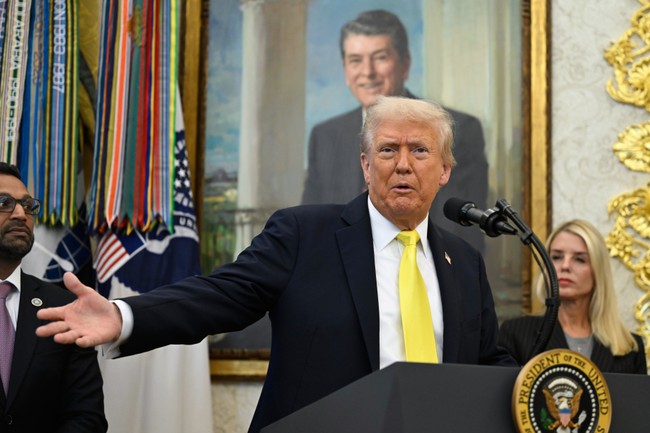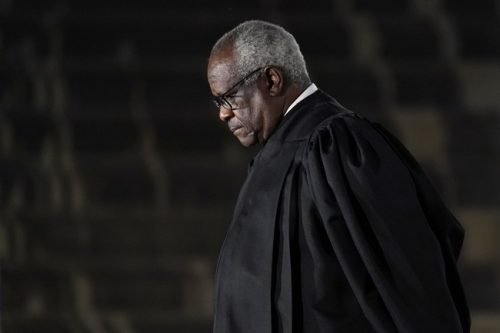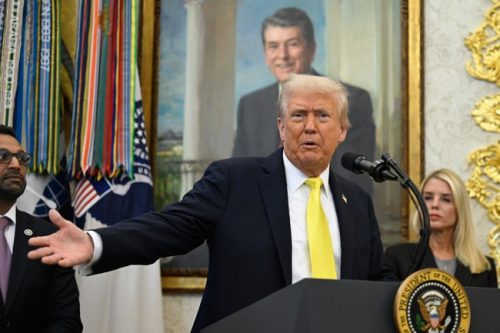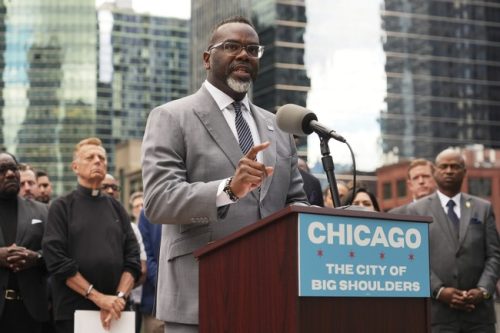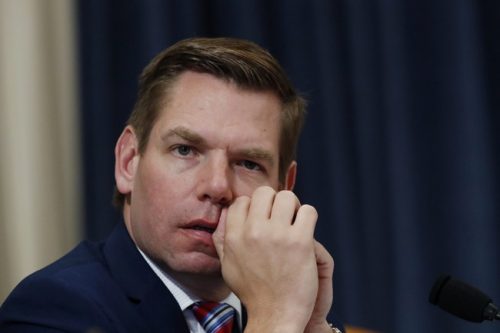Federal investigators have opened contact with Capitol Police to question six lawmakers after a video urged members of the military and intelligence community to disobey what the lawmakers called “illegal orders” from President Trump, and the fallout now includes calls for arrests, a military review, and public pushback from conservative leaders.
The FBI and the Department of Justice have reached out to Capitol Police to arrange interviews with six members of Congress who appeared together in a video encouraging military and intelligence personnel to disobey “illegal orders” attributed to President Trump. That outreach signals the federal government is treating the matter seriously and moving to gather formal statements from the lawmakers involved.
President Trump reacted forcefully on his social platform, calling for the lawmakers to be arrested and tried for “seditious behavior.” Several hours later he wrote, “SEDITIOUS BEHAVIOR, punishable by DEATH!” which sharply escalated the rhetoric surrounding the episode and put the involved members of Congress squarely in the national spotlight.
The lawmakers in the video are all listed as having prior service in national security or the armed forces: Senator Elissa Slotkin of Michigan, Senator Mark Kelly of Arizona, Representative Chris Deluzio of Pennsylvania, Representative Maggie Goodlander of New Hampshire, Representative Chrissy Houlahani of Pennsylvania, and Representative Jason Crow of Colorado. Their combined status as former service members and intelligence officers is central to the controversy because it frames their message as coming from people who know military procedures.
The Department of War has announced a formal review into Senator Mark Kelly, a retired Navy captain, and is exploring whether he could be recalled to active duty and tried under the Uniform Code of Military Justice. Four of the other lawmakers reportedly served previously in the military but are not retired and therefore are not subject to the UCMJ, while Elissa Slotkin is reportedly ineligible for trial under the UCMJ because of her prior CIA service.
On the political front, conservative leaders have pushed back hard against what they call a politicized effort to undermine the military’s chain of command. The argument from that side is straightforward: open calls from public officials for soldiers to second-guess orders risks confusion and could damage unity in critical moments, which is why some are demanding accountability and legal scrutiny.
The despicable video urging @DeptofWar troops to “refuse illegal orders” may seem harmless to civilians — but it carries a different weight inside the military…In the military, vague rhetoric and ambiguity undermines trust, creates hesitation in the chain of command, and erodes cohesion.The military already has clear procedures for handling unlawful orders. It does not need political actors injecting doubt into an already clear chain of command.As veterans of various sorts, the Seditious Six knew exactly what they were doing — sowing doubt through a politically-motivated influence operation. The @DeptofWar won’t fall for it or stand for it.
The video made by the “Seditious Six” was despicable, reckless, and false. Encouraging our warriors to ignore the orders of their Commanders undermines every aspect of “good order and discipline.” Their foolish screed sows doubt and confusion — which only puts our warriors in… https://t.co/UvLXChZnmF
— Pete Hegseth (@PeteHegseth) November 24, 2025
Legal experts and former officers are now parsing whether statements by elected officials crossed criminal lines or remain protected political speech, and the presence of federal investigators shows those questions will be tested beyond comment threads. The investigative step to interview the lawmakers through Capitol Police is a procedural move that can produce sworn accounts and allow prosecutors to weigh evidence before deciding on any charges.
From a Republican perspective, the core concern is maintaining a clear, apolitical chain of command that serves the nation, not partisan agendas. When former servicemembers in uniform or public life urge active-duty personnel to ignore orders, it creates a dangerous precedent that could be exploited at home or observed abroad as a sign of instability.
Those defending the video argue it was a warning about illegal acts and an attempt to protect personnel from unlawful directives, but critics counter that the public, vague language used invited confusion rather than offering precise legal guidance. That tension between free speech, duty, and discipline will be central as interviews and reviews move forward and as the public digests what these statements mean for civil-military relations.
Politically, the episode has already reshaped narratives on both sides: conservatives emphasize rule of law and military cohesion, while the lawmakers involved frame their actions as standing up to perceived threats to constitutional norms. The next steps—interviews, potential administrative or military reviews, and any prosecutorial decisions—will determine whether this incident becomes merely a headline or evolves into formal charges with real consequences.
Editor’s Note: President Trump is leading America into the “Golden Age” as Democrats try desperately to stop it.

